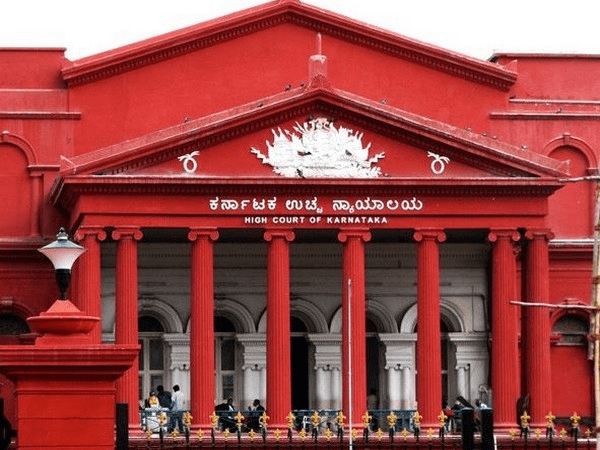The Karnataka High Court has disposed of a PIL seeking direction to the Principal Chief Conservator of Forests, Karnataka; the Principal Chief Conservator of Forests, WildLife and the Chief Wildlife Warden, to initiate appropriate action against the private respondent for unauthorised radio collaring of tigers in Nagarahole National Park in 2000.
The petitioner, claiming himself to be an agriculturist engaged in plantation of coffee, sought direction to quash the permission dated June 24, 2009 and November 16, 2007, granted under Section 28(1) of the Wild Life (Protection) Act, 1972 .
The petitioner further sought direction to the Union of India as well as the Government of Karnataka, to refer all the allegations made against the private respondent to the Central Bureau of Investigation and seek enactment of laws governing the activities of the NGOs funded by foreign sources, to make their activities accountable and transparent.
He assailed the validity of Section 28(1)(a) to (d) of the Act as ultra-vires.
While considering the PIL, the Division Bench of Acting Chief Justice Alok Aradhe and Justice S. Vishwajith Shetty noted that Section 28 of the Act dealt with the grant of permit. It provided that the Chief Wildlife Warden may, on application, grant to any person a permit to enter or reside in a sanctuary for the purposes of investigation or study of wildlife and purposes ancillary or incidental thereto. In the present case, in exercise of powers under Section 28(1)(a) of the Act, a permit was issued on November 16, 2007.
A perusal of the said order makes it clear that the said order was in force for a period of three years and has come to an end on account of efflux of time, during the pendency of the petition. It is also relevant to note that the aforesaid permission has not been renewed further.
Insofar as the order dated 24.06.2009 granting permission under Section 28(1)(a) of the Act is concerned, the Additional Government Advocate has stated that the aforesaid order is no longer in force as it has ceased to operate. Therefore, the first relief claimed in the petition with regard to the orders dated 24.06.2009 and 16.11.2007, issued under Section 28(1)(a) of the Act, does not survive for consideration on account of efflux of time, observed the Bench.
For the second relief with regard to radio-collaring of tigers in Nagarahole National Park is concerned, the state government has constituted an Expert Committee to conduct a detailed study on the death of a large number of tigers in Nagarahole National Park and by an order dated 01.03.1993, the report of the aforesaid Expert Committee has been accepted. The Expert Committee in its report has concluded that mortality reported amongst the tigers and the leopards in Nagarahole National Park is not due to chemical-immobilization and radio-collaring and is in no way attributable to the research project entitled “Ecology and Management of Large Carnivores”.
The Bench further noted that the State Government by a communication dated 17.09.2009 informed the Inspector General of Forests and Member-Secretary, National Tiger Conservation Authority, New Delhi, that the permission for radio- collaring of tigers in the State of Karnataka has been rejected.
In view of the report submitted by the Expert Committee, which has been accepted by the State Government and in view of the order dated 17.09.2009 passed by the Additional Principal Chief Conservator of Forests (Wildlife) and Chief Wildlife Warden, by which the permission for radio-collaring of tigers in the State of Karnataka has been refused in exercise of powers vested under Section 28(1)(c) of the Act, the second prayer of the petition according to the Court also does not survive for consideration.
The relief has been prayed for conducting an enquiry for collection of animal bones. It is noted by the High Court that the Field Director viz., an Indian Forest Service Officer had conducted an enquiry wherein it has been stated that the skull and bones of Tigers, Leopards and other wild animals were returned by one private respondent and the same are presently stored at the Saw Mill Building in the Kallahalla Forest Range.
Insofar as the relief of enactment of the laws relating to governing the activities of the NGOs, who are funded by foreign sources is concerned, suffice it to say that such a relief cannot be granted in the petition , held by the High Court.
It is mentioned by the High Court that Foreign Contribution (Regulation) Act, 1976, which was in force, has been repealed by the Foreign Contribution (Regulation) Act, 2010 and the said Act is in force.
“No ground has either been pleaded or argued to challenge the validity of Section 28(1)(a) to (d) of the Act. It has neither been contended that the Parliament has no power to enact the aforesaid law nor has it been argued that the same is in violation of any of the fundamental rights or statutory rights guaranteed to the petitioner.
For the aforementioned reasons, the writ petition stands disposed of”, the order read.


